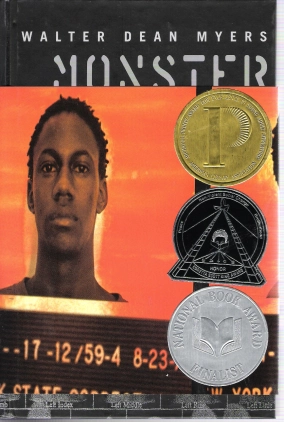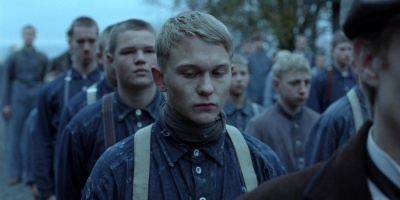
So, I just watched Stanley Kubrick’s A Clockwork Orange for the first time yesterday. For better or worse, it is magnificently unique; you’re unlikely to see anything else like it in your entire life. What really struck me wasn’t the story, though it was good, but the visuals and sets, which were outstanding. The backdrops to this bizarre tale are somewhere between Salvador Dali, M.C. Escher, and 70’s decor from hell.
Alex Delarge (Malcolm McDowell,) the antihero of “A Clockwork Orange,” likes to hurt people. It’s that simple, he rapes, assaults, and kills not for personal or fiscal gain, but simply because he can. What better way for a Ludwig Van Beethoven loving youth with an insatiable appetite for ultraviolence to spend his nights and weekends?
Delarge lives in a dystopian Britain filled with rot, decay, and futuristic gangs that like to rape women and beat the shit out of people. Alex is a proud member of such a gang: the self proclaimed leader of his ‘droogs’ (Alex and his friends speak in a slangy imaginary language which incorporates English and Russian,) he is simply content raising hell and causing trouble.
When Alex’s life of crime finally catches up with him, he is sent to prison (transitioning the film’s psychedelic backdrop, temporarily at least, to a more standard Borstal setting) and eventually winds up participating in a traumatic aversion therapy to cure him of his criminal impulses, winding up as timid as a puppy, an emotional eunuch repulsed by the very thought of violence.
“A Clockwork Orange” is a very long movie, 137 min., but it doesn’t seem to contain a bit of filler. It just has a really long story to tell. Malcolm McDowell (hard to believe he’s in his seventies now!) is chilling and creepily charismatic as a unrepentant sadist. His parents (Philip Stone and Sheila Raynor) don’t beat him or deprive him of his rights, but they really could care less whether he goes to school or what sadistic new pastime he picks up.
Is Mom and Dad’s bored apathy what has turned Alex into a monster? Children pick up quickly on whether they’re cared about or not, whether their teachers and parents legitimately give a shit about them or how they choose to wheedle away their days. But is the ultimate self absorption of parents and authority figures enough to make a psychopath? Alex, ever the charming beast, would be unlikely to care about these matters.

Furthermore, Alex lives in a spectacularly self absorbed society that mirrors our own. This is taken to darkly comedic heights when the ‘cat lady’ (Miriam Karlin) tussles with Alex with a obscene phallic statue that’s apparently ‘an important piece of art.’ Alas, the poor wretched woman is crushed by it. What is it Tyler Durden in Fight Club said? ‘The things you own end up owning you.’ And sometimes you’re bludgeoned to death by your own porcelain penis. An absurd demise you’d be unlikely to see in any other movie, ever.
Ironically, the prison chaplain (Godfrey Quigley,) for all his off putting talk of fire and brimstone, is the only one in this world besides the sharklike, predatory Alex himself with any sense whatsoever. It is Quigley’s character who supplies the film’s message; you can’t coerce or manipulate anyone into being good. “Goodness comes from within.” They have beaten and brainwashed Alex into submission; what have they accomplished? You act in a kind and morally generous way because you want to, because you think it’s the right thing to do.
This lesson could be applied to organized religion; even if you tantalize a bad apple with tales of heavens’ spoils and frighten them with stories about a fiery hell, they will eventually show their rotten core. And naturally, Alex gets the last laugh, even while both political parties use him as a puppet for their own personal gain.
“A Clockwork Orange” is a culturally significant work, but it’s not for the extremely sensitive or those with weak stomachs. Furthermore, it’s definitely not for kids or impressionable teens. A triumph of visuals and sound mixing, it can be a little bit disturbing at times and deeply puzzling at others, but it’s become a cultural icon for a reason. Malcolm McDowell’s maniacally inspired performance seals the deal that though “A Clockwork Orange” is not a perfect movie, it’s a pretty damn good one.























